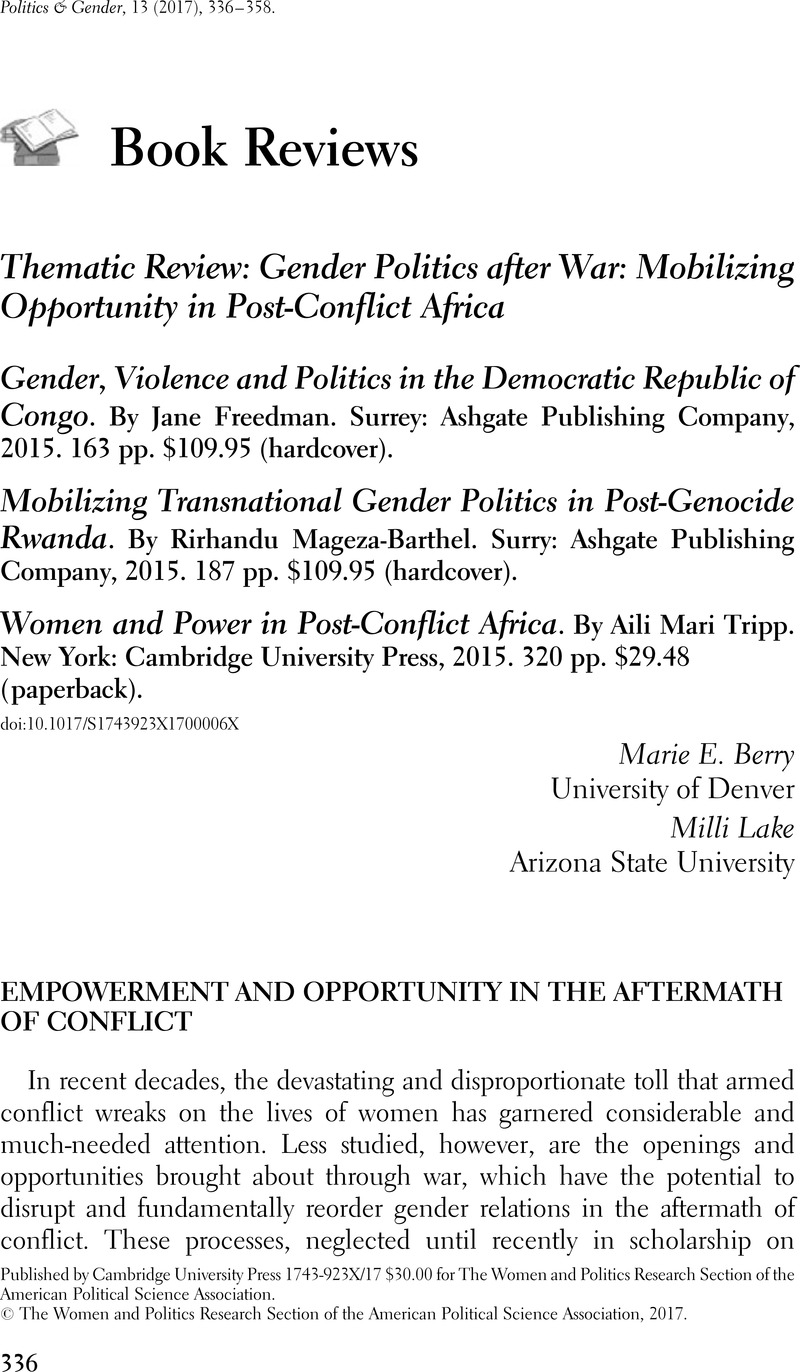Crossref Citations
This article has been cited by the following publications. This list is generated based on data provided by Crossref.
Lorentzen, Jenny
2017.
Norm appropriation through policy production: Rwanda’s gender policies.
Third World Thematics: A TWQ Journal,
Vol. 2,
Issue. 5,
p.
658.
Agerberg, Mattias
and
Kreft, Anne-Kathrin
2020.
Gendered Conflict, Gendered Outcomes: The Politicization of Sexual Violence and Quota Adoption.
Journal of Conflict Resolution,
Vol. 64,
Issue. 2-3,
p.
290.
Berry, Marie E.
Bouka, Yolande
and
Kamuru, Marilyn Muthoni
2021.
Implementing Inclusion: Gender Quotas, Inequality, and Backlash in Kenya.
Politics & Gender,
Vol. 17,
Issue. 4,
p.
640.
Lake, Milli
Pierotti, Rachael S
and
Alik-Lagrange, Arthur
2023.
Resilience, Vulnerability, and Social Isolation: Barriers to Poverty Reduction in War.
International Studies Quarterly,
Vol. 67,
Issue. 4,
Tripp, Aili Mari
2025.
The Changing Subfield of Comparative Politics and the Journal of Politics & Gender.
Politics & Gender,
Vol. 21,
Issue. 1,
p.
105.



